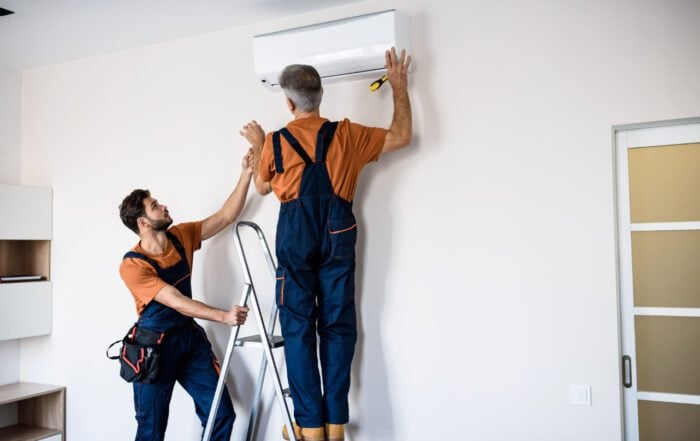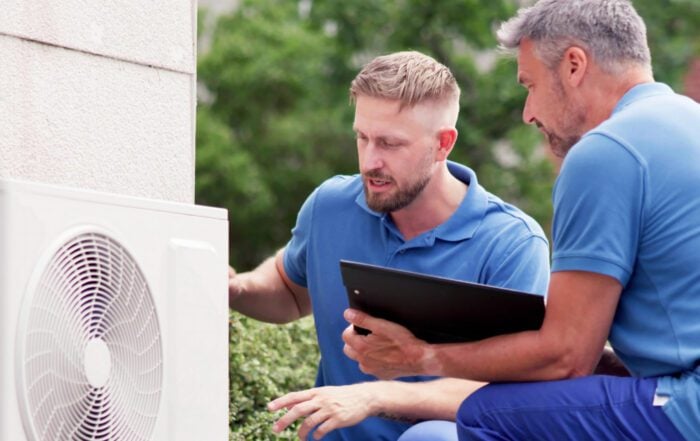Power Outages Happen
If you are native to the Midwest, you know that power outages are just a part of life. Why not take some time to prepare an emergency kit for those outages now and save yourself a ton of trouble later. Being unprepared during a power outage can be dangerous and stressful. To prevent kicking yourself later, let’s get started on your emergency kit!

Why Does the Power Go Out?
Power outages can be caused by a variety of factors, the most common being extreme weather events. Freezing rain, sleet, storms, high winds can easily leave you without power. Cold snaps and heat waves are events that can cause power outages. When too many people are blasting their heat or air conditioning, the power can fail. Usually, power outages only last a few minutes but they can last days or even weeks. These prolonged outages are often due to damaged power lines that take a while to repair.
Safety Warnings
If your power is out, don’t panic! Here are some safety tips you should first be aware of:
- No matter how cold it gets, do not try to heat your home with your gas stove or oven. This is dangerous and could start a fire!
- Unplug/Disconnect your appliances and electrical devices. This includes your computer, kitchen appliances, and anything else that you plug into an outlet. This will protect your devices from power surges that will damage them.
- Keep your refrigerator and freezer closed to prevent food spoilage.
- Do NOT run your generator inside your home, garage, or within ten feet of a window. This is a serious carbon monoxide poisoning risk.
Start Planning Your Kit
One of the main ways to stay safe during a power outage is to be prepared. During outages, businesses close, medical devices can’t be powered, communication can be cut off from others and so can transportation. Let’s think about the ways you can prepare for the obstacles that come with a loss of power.
Take a Basic Inventory & Know Your Needs
If you think about what your day-to-day looks like, what types of things can you not go without? Usually, the basic answer to this is food, water, medication, lighting, and first aid. How much food do you or your family need in a day’s time? How much drinking water do you need in case of an emergency? It is recommended that your emergency kit has enough food & water for everyone in your household for at least three days. Being able to see is extremely important in order to stay safe. Make sure your kit includes either a lantern, flashlights, and extra batteries! A charged portable phone battery or charger may also be something you should include. If you take a prescription medication, especially if it needs refrigerated, have a plan to keep your medicine at the correct temperature throughout the entire outage. Have over-the-counter medications that your family uses in your emergency kit as well.
You never know what might happen during an emergency. If anyone around you accidentally gets hurt, you need to have a first aid kit on hand. This should include antibacterial ointment, bandages, over-the-counter pain medication, emergency inhalers if needed, rubbing alcohol, and tweezers.
First Aid, Utensils, and More
Now that you have the bare essentials inventoried, what else can you prepare to help you more comfortably get through the outage? If you are in your home, you may have the things you need available to you. However, in an emergency, you might need to leave quickly, your things could become damaged, or you may not be able to access all parts of your home. Putting a few blankets, towels, and/or cold-weather sleeping bags in an accessible, dry place is a great idea. If you have children living with you, they may soon become bored or even scared during the outage. Have some comfort items, games, toys, and activities to keep the kids busy. Similarly, have some things ready to entertain yourself like a book to read or games to play.
Due to the COVID-19 pandemic, it would also be wise to have some masks, cleaning supplies, and hand sanitizer in your emergency kit! When the outage is over, restock your supplies and plug your devices back in. If you are unsure if your food and/or medicine has survived the outage, throw it out! Contact your doctor or pharmacy to replace your medication.
Learn More
If you’d like to learn more about how to protect your home against surges, fix an electrical problem, or repair your generator, visit us at our website or give us a call at (440) 548-1727 with any questions!
Have Any Questions?
If this is an emergency please call 440-937-9134.
Otherwise, please feel free to call us or submit this form to schedule an appointment for service or request an estimate. We will contact you shortly!



